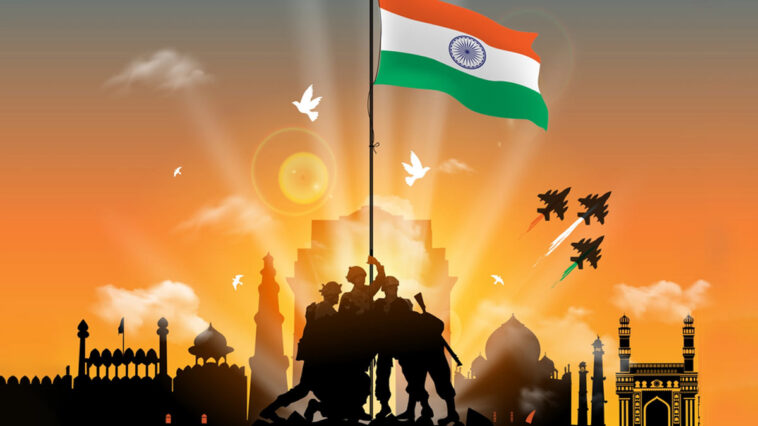Since 1950, India’s Constitution has been in place on January 26. But the Constitution was written and approved by the Constituent Assembly on November 26, 1949, a long time before the date that was chosen.
If that’s the case, why do we celebrate our Republic Day on January 26? The answer lies in the history of India’s fight for freedom, which has made the date important since 1930.
The historic “Poorna Swaraj” declaration was made official on January 26, 1930. This marked the start of the final phase of India’s fight for freedom from British rule, where the goal was complete independence.
After the Chauri Chaura incident in February 1922, the Non-Cooperation Movement ended abruptly. At the time, Mahatma Gandhi thought that the country was “not yet ready” for his peaceful ways of protesting. So, there was no more organising on the scale of the Non-Cooperation Movement and the anti-Rowlatt Satyagraha in the 1920s.

But the 1920s were by no means unimportant. From the rise of revolutionaries like Bhagat Singh and Chandrashekhar Azad to the coming of age of a new generation of Indian National Congress (INC) leaders like Jawaharlal Nehru, Subhash Chandra Bose, Vallabhai Patel, and C Rajagopalachari, the 1920s set the stage for the future of India’s freedom struggle.
Notably, in 1927, the British government put together the Simon Commission, which was made up of seven Europeans led by Sir John Simon and tasked with coming up with ideas for political reforms in India. This made people all over the country angry and unhappy. For the first time since 1922, people all over the country protested against the Simon Commission, chanting “Simon Go Back.”
In response, the INC put Motilal Nehru in charge of its own commission. The Nehru Report asked for India to be made a dominion within the Empire. In the Balfour Declaration of 1926, dominions were described as “autonomous communities within the British Empire, equal in status, not subordinate to each other in any way in their internal or external affairs, united by a common allegiance to the Crown and freely associated as members of the British Commonwealth of Nations.” Countries like Canada, Australia, and New Zealand became dominions in 1926.
Importantly, not everyone in the Congress agreed with the Nehru Report. Young leaders like Bose and Jawaharlal Nehru, who was Motilal’s own son, wanted India to break off all ties with the British Empire. They said that even though India would have some independence as a dominion, the British Parliament and Crown would still be able to get involved in Indian affairs.
Also read: 13th National Voters Day celebrated on January 25
Importantly, both Bose and Nehru thought that if India became a dominion, it would be complicit in colonial exploitation in other parts of the British Empire, especially in Africa. Bose and Nehru had a much more radical view of the world than their predecessors. They didn’t just see anti-colonialism as a local political issue for India, but also as a global issue.But Gandhi still wanted India to be a dominion, saying that it would be a good step in India’s fight against colonialism. His views would soon change.




